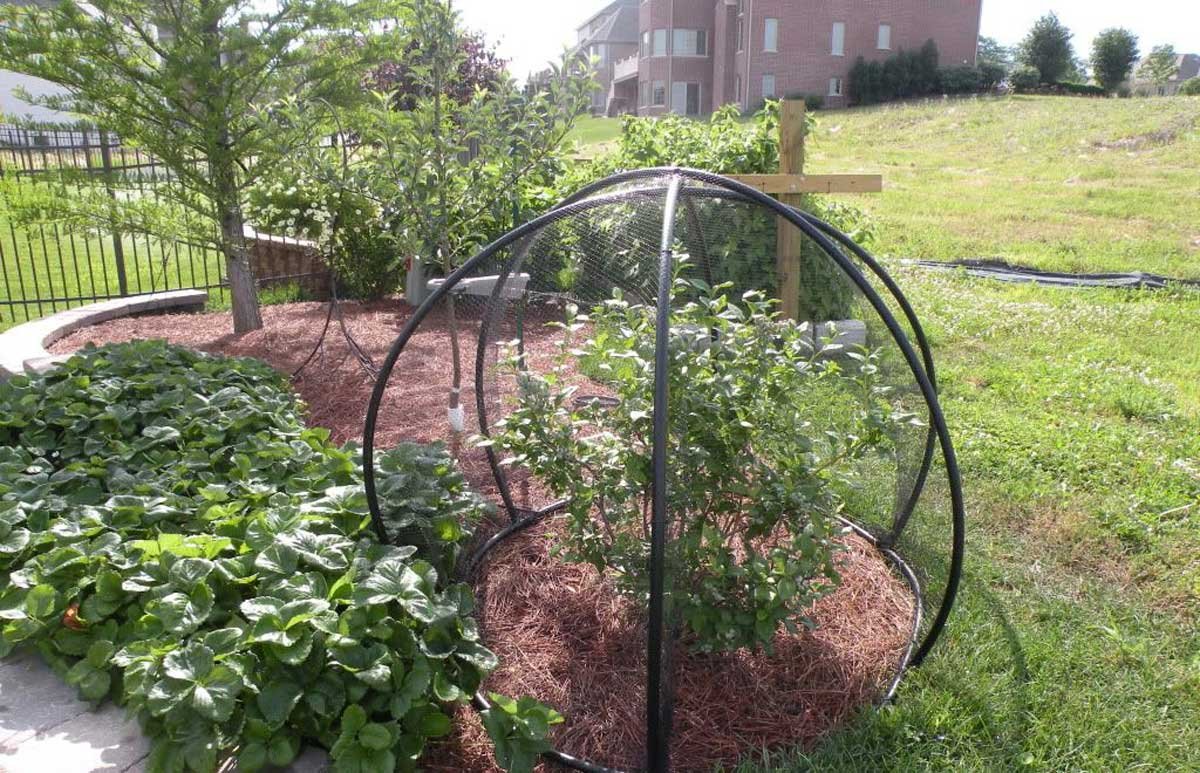Birds are beautiful animals that are also essential to maintaining homeostasis in our environments.
That said, they can become pests when they invade your garden and destroy your plants. Luckily, there are many tactics to try that repel birds in a humane way, everything from creating a diversion to anti-bird spikes. Let’s take a look at them.
Bird Netting
Bird netting or garden netting is one of the most humane ways to keep birds away from your vegetables or other garden plants. If you require bird netting for your private garden, you can simply get them at your local hardware store. If you need a lot of it, there are bird netting wholesale suppliers that can cater to your property requirements.
Bird netting is exactly what it sounds like: netting that goes around your garden and plants that keeps birds out. The openings, which are typically less than 1cm square, still allow bees and other pollinators in, which you need for healthy growth. Be sure to also buy netting that is designed not to block sunlight.
In a similar way, you can also use chicken wire on the ground to keep birds away. Just lay the chicken wire on the soil over freshly planted seeds and small sprouts to keep birds out.

Anti-Bird Spikes
These items are great at preventing roosting birds from invading your garden. They might sound scary or cruel, but they are not. Rather, anti-bird spikes sit on flat surfaces around your garden. They contain thin, flexible pieces of metal that stick up and out in various places. They prevent birds from landing and also let them know that the area is inhospitable.
The spikes will not harm the birds; if they try to land on them or fly by them, they will feel them and keep moving. They are not sharp or rigid enough to impale birds or cause other injuries.
Decoy Predators
You’ve undoubtedly heard of a scarecrow, which is an object designed to resemble a man to keep birds away from crops. The same idea applies to other natural predators of birds.
Two of the best decoy predators are snakes and owls. Because these animals are so often the downfall of birds, they look out for them and avoid any possible interactions with them.
In order for decoys to work, you must move them around frequently. If not, they become just part of the scenery and birds know that they do not pose a threat (birds are smarter than many people assume!). Find a new home for them at least once a month, but once a week is better.
… Or a Real Predator
A pet of any kind is a commitment, and certainly you should want one for more reasons than just to scare away unwanted birds. But if you’ve already been thinking about getting a dog or especially a cat, the fact that they will keep birds away might be the icing on the cake.
Use Wind Motion to Your Advantage
Birds can’t differentiate when something that moves is or is not a threat. They have evolved to react immediately to movement. That’s why having a variety of “moving parts” in your garden can help keep birds away.
Wind chimes, garden spinners, and other similar items can be very effective. Just be sure to move them around every few weeks so that birds don’t get used to them.
Another item that some gardeners swear by is a terror eyes balloon. Balloons obviously move very easily with only a little wind. This particular balloon has large eyes printed on it, and its almost constant movement is very frightening to birds.
Reflective Surfaces
For much the same reason that moving objects are effective in keeping birds away, mirrors can work the same way. When birds see objects (including themselves) moving in the mirrors, it will scare them and they will fly away. You can buy lovely decorative reflective surfaces and place them strategically around your yard.
Provide a Food Source Elsewhere
As with most animals, birds want to do the least amount of work for the greatest payoff, all while maintaining their safety. If you set up a bird feeder or provide bird food somewhere nearby, but away from your garden, they will likely visit that first.
In order for this method to work, you must carefully select the type of bird food depending on what kind of birds are invading your vegetables. You also have to be very diligent about keeping your bird feeder full. Otherwise, you could end up with a bigger problem on your hands than that with which you started.

